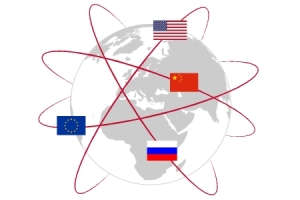In an unprecedented disruption of an operational GNSS constellation, all 24 satellites in the Russian GLONASS broadcast corrupt information for 11 hours starting at 21 UTC on 2 April. This rendered the system completely unusable to all worldwide GLONASS receivers.
The Russian GLONASS monitoring center showed satellites in unhealthy statuses: “failure” and “illegal ephemeris.” Because the failure was systemwide and simultaneous, some have speculated that an incorrect uploading of corrections to satellite ephermerides (orbital positions) occurred.
The ephemeris, used to calculate the position of each satellite in orbit, are contained in the navigation data messages together with information about the time and status of the entire satellite constellation (almanac). This data is processed by user receivers on the ground to compute their precise position.
The issues would have affected urban canyons or streets bordered by high buildings that block out most of the sky. For instance, if only three GPS satellites are seen, your phone might use a couple of Glonass satellites to get a location, In such a case location errors of up to 55km could be suffered.
The fix could not take effect until each satellite in turn passed back over control stations in the Northern Hemisphere to be reset, thus taking nearly 12 hours.
Satellite navigation systems are vitally important to the global economy. The logistics industry relies on satellite navigation to manage the global flow of goods, aircraft use it for navigation, and deep-sea oil rigs use it to maintain their position at sea. The time signals they provide also help numerous automated systems stay accurate.
This event is just a reminder that alternative complementary satellite navigation systems are essential.
This is the reason why Galileo is here. With the integrity messages broadcast together with the navigation messages by the Galileo satellites, the system is prevented from this kind of failures.
The first four Galileo satellites are already in orbit and operational. Over the course of 2014 six more satellites are planned to join them in three separate Soyuz launches. Galileo initial services are scheduled to start by the end of this year.

